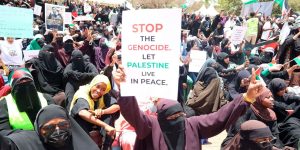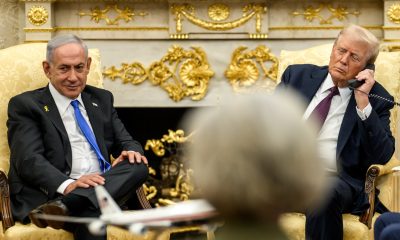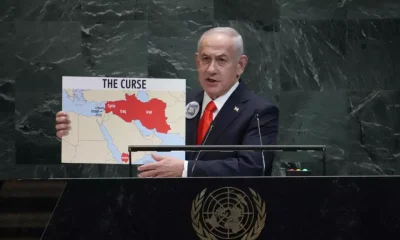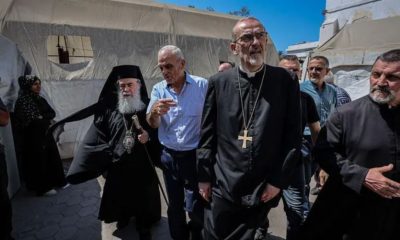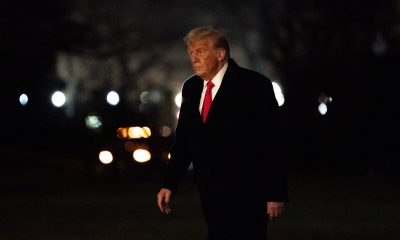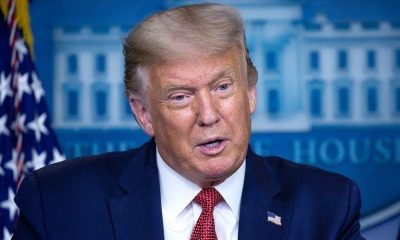News
Jamia Mosque Imam Calls for KFC and Coca-Cola Boycott Over Gaza as Kenyan Government Faces Criticism for Silence
The Kenyan protests come amid a broader wave of solidarity demonstrations across Africa and the Muslim world.

NAIROBI, Sept 21 – The imam of Kenya’s largest mosque has called on Muslims to boycott Western brands including KFC and Coca-Cola over their perceived support for Israel, as the Kenyan government faces mounting criticism for its muted response to the humanitarian crisis in Gaza.
Sheikh Jamaludin Osman, imam of Jamia Mosque in Nairobi, issued the boycott call during a solidarity rally at Uhuru Park on Sunday that brought together thousands of pro-Palestinian supporters, Islamic scholars, and political leaders.
“I want to send a message to our brothers who are still eating KFC, I want to send a message to our brothers and sisters who are still drinking Coca-Cola; these are people who are supporting the genocide,” Sheikh Osman told the gathering, referring to what he described as the companies’ indirect funding of Israeli military actions.
The rally, which doubled as a humanitarian fundraiser for Palestinians, highlighted growing frustration among Kenyan Muslims and civil society groups over what they perceive as their government’s inadequate response to the Gaza conflict that has reportedly killed more than 65,000 Palestinians since October 2023.
Government Under Pressure
Hassan Omar, Secretary General of the ruling United Democratic Alliance Party and East African Legislative Assembly member, joined the criticism of Kenya’s stance, calling on the government to classify Israel as a “terrorist entity.”
“We need to emphasise as Muslims a resolution to gazette the terrorist, Zionist state of Israel as a terrorist organisation,” Omar declared, reflecting a hardening of positions among some political leaders.
The criticism comes as Kenya has maintained diplomatic relations with Israel while officially supporting a two-state solution. The country has faced scrutiny for its voting pattern at the United Nations, where it has abstained or voted against several resolutions condemning Israeli actions in Gaza, aligning with Western powers rather than many African nations.
Dadaab MP Farah Maalim questioned Kenya’s reluctance to take a firmer stance. “As a country, we should not be silent because nations need each other. What is happening in Gaza is genocide and must be condemned in the strongest terms possible,” he said.
Corporate Boycott Campaign Spreads
The boycott call reflects a broader international movement targeting multinational corporations perceived as supporting Israel.
Companies like KFC, Coca-Cola, McDonald’s, and Starbucks have faced similar campaigns across Muslim-majority countries and among pro-Palestinian activists globally.
In Kenya, the campaign has gained traction particularly among Muslim communities, with Islamic committees, schools, and mosques from across the country participating in Sunday’s fundraising drive for humanitarian aid to Gaza.
Sheikh Osman, who was appointed imam of the historic Jamia Mosque in May 2024 after studying at the University of Madinah, has emerged as a prominent voice in Kenya’s Muslim community.
The mosque, built in the 1920s, serves as a central hub for Nairobi’s Muslim population.
Beyond the boycott calls, the Uhuru Park gathering served as a platform to raise funds for medical supplies, food aid, and other essentials for Palestinians.
Organizers also launched an environmental initiative to plant trees in memory of Palestinians killed in the conflict.
Amnesty International Kenya’s Executive Director Irũngũ Houghton urged the government to take a clearer position on the crisis.
“We call on the government of Kenya to issue a consistent and clear statement condemning all violations of international law in Gaza and the occupied Palestinian territories,” he said.
“Our New York and Geneva missions must vote consistently at the United Nations on the right side of history to condemn hostilities, call for the protection of civilians, and demand accountability for war crimes,” Houghton added.
The Kenyan protests come amid a broader wave of solidarity demonstrations across Africa and the Muslim world.
Similar rallies have been held in countries including South Africa, Senegal, and other African nations, reflecting widespread continental sympathy for the Palestinian cause.
However, the African Union’s response has been criticized as inadequate by some activists, with Kenya’s position seen as reflecting broader continental divisions on how to respond to the crisis.
The humanitarian situation in Gaza remains dire, with more than two million people facing extreme hardship due to severe shortages of food, medical supplies, and essential services.
Many households survive on minimal rations while hospitals struggle with inadequate resources and rising malnutrition, particularly among children.
As the conflict enters its second year, pressure continues to mount on governments worldwide to take stronger positions on the crisis, with Kenya’s Muslim community clearly signaling its expectation for more decisive action from Nairobi.
The boycott campaign represents both a form of economic activism and a way for ordinary Kenyans to express solidarity with Palestinians when they feel their government’s diplomatic response has been insufficient.
Kenya Insights allows guest blogging, if you want to be published on Kenya’s most authoritative and accurate blog, have an expose, news TIPS, story angles, human interest stories, drop us an email on [email protected] or via Telegram
-

 Investigations1 week ago
Investigations1 week agoBillions Stolen, Millions Laundered: How Minnesota’s COVID Fraud Exposed Cracks in Somali Remittance Networks
-

 News1 week ago
News1 week agoUS Moves to Seize Luxury Kenya Properties in Sh39 Billion Covid Fraud Scandal
-

 News1 week ago
News1 week agoMAINGA CLINGS TO POWER: Kenya Railways Boss Defies Tenure Expiry Amid Corruption Storm and Court Battles
-

 Investigations1 week ago
Investigations1 week agoJulius Mwale Throws Contractor Under the Bus in Court Amid Mounting Pressure From Indebted Partners
-
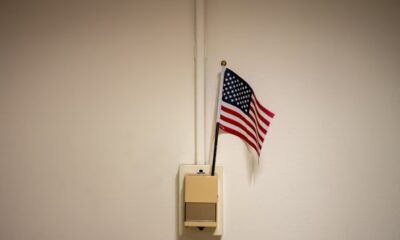
 Americas1 week ago
Americas1 week agoUS Govt Audits Cases Of Somali US Citizens For Potential Denaturalization
-

 Business2 days ago
Business2 days agoEastleigh Businessman Accused of Sh296 Million Theft, Money Laundering Scandal
-

 Business2 days ago
Business2 days agoEXPLOSIVE: BBS Mall Owner Wants Gachagua Reprimanded After Linking Him To Money Laundering, Minnesota Fraud
-
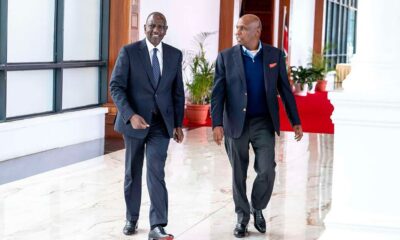
 Politics2 days ago
Politics2 days agoHow Ruto-Moi Deal Died After Temporary State House Ceasefire

